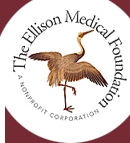 | Peter John Bradley, Ph.D.
University of California - Los Angeles | | Establishing an Intracellular Niche in Apicomplexan Parasites: The Role of Novel Rhoptry Proteins Conserved in Toxoplasma and Plasmodium
2004 New Scholar Award in Global Infectious Disease

Toxoplasma gondii is an obligate intracellular parasite in the phylum Apicomplexa that causes severe central nervous system disorders of immunocompromised (AIDS/transplant/lymphoma) individuals and birth defects to congenitally infected... (more) |
|
 | George Dimopoulos, Ph.D.
Johns Hopkins University | | Characterization of a Pattern Recognition Receptor Family in Anopheles gambiae: Implication of GNBPs in the Mosquito’s Molecular Defense Against Malaria
2004 New Scholar Award in Global Infectious Disease

Malaria is one of the most serious diseases of mankind with a worldwide prevalence of 300-500 million clinical cases and over 2 million deaths each year. It has a complex transmission cycle, involving three interacting organisms: the human... (more) |
|
 | Danielle A. Garsin, Ph.D.
University of Texas Health Science Center - Houston | | C. elegans as a Model Host for Understanding the Genetics of Bacterial Infection
2004 New Scholar Award in Global Infectious Disease

The emergence of untreatable bacterial infection in modern medicine is due to several factors. The hospital patient population is increasingly elderly and immune-compromised, creating a pool of susceptible hosts. The overuse of antibiotics has provided the necessary selective pressure for the development of... (more) |
|
 | Stefan H. I. Kappe, Ph.D.
Seattle Biomedical Research Institute | | Gene expression and function in Plasmodium liver stages
2004 New Scholar Award in Global Infectious Disease

Malaria is a mosquito-borne disease that causes more than 300 million clinical cases and more than 1 million death annually and has a severe negative impact on the social and economic progress of developing nations. Transmission of the malaria parasite Plasmodium to the mammalian host occurs when infected mosquitoes blood-feed and... (more) |
|
 | Liming Li, Ph.D.
Northwestern University | | Facilitate Prion Research Using C. elegans
2004 New Scholar Award in Global Infectious Disease

The mechanisms responsible for the conversion of a normal cellular protein into an infectious prion protein continue to defy understanding. This despite decades of scientific research and heightening public and governmental anxiety over the real and potential dangers of infectious proteins and their role in epidemics such as new variant... (more) |
|
 | Mary X. D. O’Riordan, Ph.D.
University of Michigan Medical School | | Bacterial Regulation of Intracellular Immune Surveillance
2004 New Scholar Award in Global Infectious Disease

Intracellular bacterial pathogens, such as Mycobacterium tuberculosis, are responsible for enormous morbidity and mortality worldwide. My laboratory uses Listeria monocytogenes, a facultative Gram positive bacterium, as a model to study early events in the host-pathogen interaction that direct the subsequent course of disease.... (more) |
|
 | Dirk Schnappinger, Ph.D
Cornell University | | Controlled Silencing of rpoB and ffh in M. smegmatis and M. tuberculosis
2004 New Scholar Award in Global Infectious Disease

Among communicable diseases, tuberculosis (TB) is the second leading cause of death worldwide. The most frequent form of TB is latent and does not cause clinical symptoms. Latent TB leads to active TB in ~10% of the immune-competent and 50-80% of immune-compromised individuals. Drug-sensitive TB can be... (more) |
|
 | Neal Silverman, Ph.D.
University of Massachusetts Medical School | | Using Drosophila to Elucidate the Mechanisms of Pathogenesis: Genetic and Molecular Dissection of Signal Inhibition by Yersinia Virulence Factor YopJ
2004 New Scholar Award in Global Infectious Disease

Yersinisa pestis is the causative agent of the plague, a disease that is rapidly fatal when left untreated. In the history of western civilization, plague has been responsible for the death of huge portions of entire continents.... (more) |
|
 | Marcelo Carlos Sousa, Ph.D.
University of Colorado - Boulder | | Detecting and Overcoming Antibiotic Resistance in Bacteria
2004 New Scholar Award in Global Infectious Disease

The emergence of antibiotic resistance is a global problem for public health causing a dramatic resurgence of infectious disease. More than 14 million people die each year due to infections. In the United States alone, approximately 14,000 people die each year due to “superinfections” resistant to almost every antibiotic. These numbers... (more) |
|
 | Vanessa Sperandio, Ph.D.
University of Texas Southwestern Medical Center | | Cell-to-cell Signaling in E. coli O157:H7 Pathogenesis
2004 New Scholar Award in Global Infectious Disease

Enterohemorrhagic E. coli (EHEC) is a global public health problem, causing bloody diarrhea and hemolytic uremic syndrome (HUS) throughout the world. EHEC activates expression of its virulence genes via cell-to-cell signaling in response to signals produced by the normal intestinal flora and host-hormones. The goal of this... (more) |
|
 | Heather L. True-Krob, Ph.D.
Washington University | | Breaking barriers: Defining Environmental and Genetic Factors that Modulate the Barrier to Interspecies Transmission of Prions
2004 New Scholar Award in Global Infectious Disease

Most protein conformational disorders have both sporadic and inherited forms, which is perhaps a consequence of their multifactoral nature, as they can have both genetic and environmental contributions. Prion diseases, also known as Transmissible Spongiform Encephalopathies... (more) |
|
 | Wolfgang Weninger, M.D.
Wistar Institute | | The Role of CD4+ Central Memory T Cells in Influenza Virus Immunity
2004 New Scholar Award in Global Infectious Disease

Influenza virus infections constitute increasing health concerns: (1) mortality related to influenza A virus infection has doubled during the past 2 decades, probably related to the ageing of the population; thus, an approximate 36,000 deaths have been attributed directly to influenza in the US every year; (2) antigenic... (more) |
|

